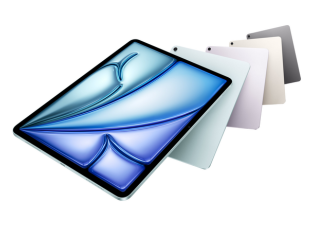- Home
- Internet
- Internet News
- Russia Blocks Encrypted Email Service ProtonMail
Russia Blocks Encrypted Email Service ProtonMail
Russian communications watchdog Roskomnadzor said ProtonMail had been used to send fake, anonymous bomb threats.
Russia has increasingly introduced restrictions on Internet use, including requiring encryption keys
Russia said on Wednesday it had blocked the Swiss email service ProtonMail, popular among journalists and activists for its focus on user privacy and high level of encryption.
Russian communications watchdog Roskomnadzor said ProtonMail, which uses end-to-end encryption to protect user data, had been used to send fake, anonymous bomb threats.
Such threats have frequently led to mass evacuations of public buildings across Russia.
Roskomnadzor said that ProtonMail had refused to provide Russian authorities with information on the owners of email accounts allegedly associated with fake bomb threats.
It said these had been sent via ProtonMail since last year and that incidence had increased this month after a similar service, Smartmail.com, was blocked.
Protonmail denied having received any requests for assistance from Russian authorities and said the block would do nothing to stop bomb hoaxes but rather only limit ordinary Russians' access to privacy in communications.
"We have received reports that ProtonMail and ProtonVPN are currently partially blocked in Russia. We are reaching out to the appropriate authorities to get the block lifted as soon as possible," it said in a statement.
It said any perpetrators seeking to continue sending false bomb threats could resort to another email service or continue to access ProtonMail via a virtual private network (VPN).
"We condemn this block as a misguided measure which only serves to harm ordinary people," ProtonMail said.
Russia has increasingly introduced restrictions on Internet use, including requiring messaging services to share encryption keys with security services and asking social networks to store users' personal data on servers within the country.
© Thomson Reuters 2020
Get your daily dose of tech news, reviews, and insights, in under 80 characters on Gadgets 360 Turbo. Connect with fellow tech lovers on our Forum. Follow us on X, Facebook, WhatsApp, Threads and Google News for instant updates. Catch all the action on our YouTube channel.
Related Stories
- Samsung Galaxy Unpacked 2026
- iPhone 17 Pro Max
- ChatGPT
- iOS 26
- Laptop Under 50000
- Smartwatch Under 10000
- Apple Vision Pro
- Oneplus 12
- OnePlus Nord CE 3 Lite 5G
- iPhone 13
- Xiaomi 14 Pro
- Oppo Find N3
- Tecno Spark Go (2023)
- Realme V30
- Best Phones Under 25000
- Samsung Galaxy S24 Series
- Cryptocurrency
- iQoo 12
- Samsung Galaxy S24 Ultra
- Giottus
- Samsung Galaxy Z Flip 5
- Apple 'Scary Fast'
- Housefull 5
- GoPro Hero 12 Black Review
- Invincible Season 2
- JioGlass
- HD Ready TV
- Latest Mobile Phones
- Compare Phones
- Apple iPhone 17e
- AI+ Pulse 2
- Motorola Razr Fold
- Honor Magic V6
- Leica Leitzphone
- Samsung Galaxy S26+
- Samsung Galaxy S26 Ultra
- Samsung Galaxy S26
- Asus TUF Gaming A14 (2026)
- Asus ProArt GoPro Edition
- Apple iPad Air 13-Inch (2026) Wi-Fi + Cellular
- Apple iPad Air 13-Inch (2026) Wi-Fi
- Huawei Watch GT Runner 2
- Amazfit Active 3 Premium
- Xiaomi QLED TV X Pro 75
- Haier H5E Series
- Asus ROG Ally
- Nintendo Switch Lite
- Haier 1.6 Ton 5 Star Inverter Split AC (HSU19G-MZAID5BN-INV)
- Haier 1.6 Ton 5 Star Inverter Split AC (HSU19G-MZAIM5BN-INV)
-
 Total Lunar Eclipse 2026: Where and How to See the Rare Blood Moon
Total Lunar Eclipse 2026: Where and How to See the Rare Blood Moon
-
 Poco X8 Series, Poco C85x 5G Teased on Flipkart, Could Launch in India in March
Poco X8 Series, Poco C85x 5G Teased on Flipkart, Could Launch in India in March
-
 iPad Air (2026) Launched in India With M4 Chip, Up to 13-Inch Display: Price, Specifications
iPad Air (2026) Launched in India With M4 Chip, Up to 13-Inch Display: Price, Specifications
-
 iPhone 17e Launched in India With MagSafe, Ceramic Shield 2 and A19 Chip: Price, Specifications
iPhone 17e Launched in India With MagSafe, Ceramic Shield 2 and A19 Chip: Price, Specifications












